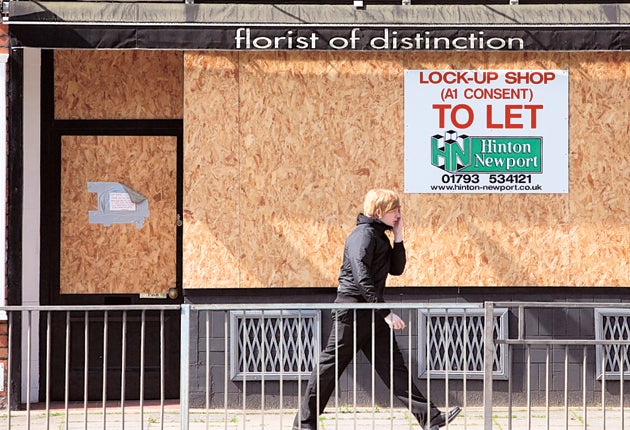David Prosser: The message from consumers: the Bankmust bail us out

Outlook The second successive fall in monthly retail sales cannot be directly attributed to the measures unveiled in Wednesday's spending review, since the data is for September. Still, the precipitous fall-off in consumer confidence we have seen since the Chancellor's emergency Budget in June provides the biggest clue as to why spending is falling: people are spooked by the prospect of the austerity ahead (not to mention the million job losses expected as a result of the spending review).
Mervyn King, the Governor of the Bank of England, who has been a cheerleader for early and tough action against the deficit, has also made it clear that the Monetary Policy Committee (MPC) stands ready to intervene if it looks as if fiscal policy is jeopardising Britain's economic recovery (an offer George Osborne yesterday invited him to make good on).
So far, the MPC remains split – seven members voted for no change to interest rates or quantitative easing last month, while Adam Posen and Andrew Sentance, respectively, backed a softening and hardening of policy.
The minutes of the MPC meeting that reveal this voting pattern make interesting reading. They show that one of the most important considerations in moremembers of the committee not joining Mr Posen in calling for a renewal of quantitative easing (QE) was that consumers are proving more resilient than had been expected. That resilience now looks to be cracking by the day. The latest fall in high street sales reflects what retailers have been saying for some time: it is getting harder to persuade shoppers to part with their money and the outlook for the next 12 months is poor.
The minutes show that the otherfactor in the MPC's reluctance so far to take the risk of an even longer period of elevated inflation that an early return to QE might prompt was some tentative evidence lending is finally easing.
It is not clear what this evidence is. The Bank of England's Trends In Lending report, published yesterday, suggests that while the largest businesses may finally be beginning to see credit conditions relax, small and medium-sized companies are no better off. Nor does there appear to have been a thaw in consumer credit.
The Coalition is determined to rebalance Britain's economy and hopes the recovery will be led by exports. Few would take issue with such ambitions, but in the short term, the recovery will stand or fall on the strength of consumer spending. There is no reason to think confidence will return as the spending review is implemented and every reason to be fearful for growth. Over to you, Mervyn.
Join our commenting forum
Join thought-provoking conversations, follow other Independent readers and see their replies
Comments